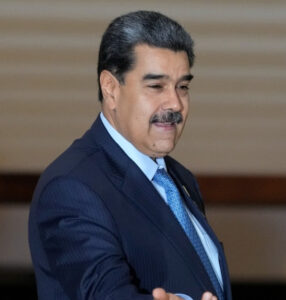
On Tuesday, Venezuela strongly criticized its neighbor, Guyana, for auctioning off oil blocks located in a disputed region off the coast. Caracas claims this region as part of its territory, while it has been administered by Guyana as the 160,000-square-kilometer (62,000-square-mile) Essequibo region.
The dispute over the 19th-century border escalated significantly in 2015 when crude oil deposits were discovered off the coast of this disputed region. Currently, a pending dispute related to this border is before the International Court of Justice (ICJ) in The Hague, albeit against Venezuela’s objections.
Venezuela’s foreign ministry in Caracas issued a statement strongly denouncing Guyana’s auction of oil blocks, asserting that it is illegal and should be suspended until the ICJ makes a decision. Venezuela further claimed that Guyana lacks sovereign rights over these maritime areas and is in violation of international law.
In response, Guyana’s presidency defended its actions, stating that it has the right to pursue economic development activities within its sovereign territory. Guyana, once a Dutch and

British colony, maintains that its border with Venezuela was established by an arbitration tribunal in 1899, following a crisis that prompted intervention by the United States on behalf of Caracas, which had close ties with Washington at the time.
In 2018, Guyana formally requested that the International Court of Justice in The Hague confirm the 1899 border agreement. However, Venezuela contends that the Essequibo river, situated to the east of the disputed region, serves as a natural border between the two countries, a claim recognized since 1777 and one that rejects the arbitration ruling.
It’s worth noting that the Essequibo region is home to approximately 125,000 of Guyana’s 800,000 residents, according to a census conducted a decade ago. Additionally, Guyana possesses significant oil reserves, estimated to be at least 10 billion barrels, making it one of the countries with the highest per capita oil reserves, surpassing even Brunei, Kuwait, or the United Arab Emirates.


